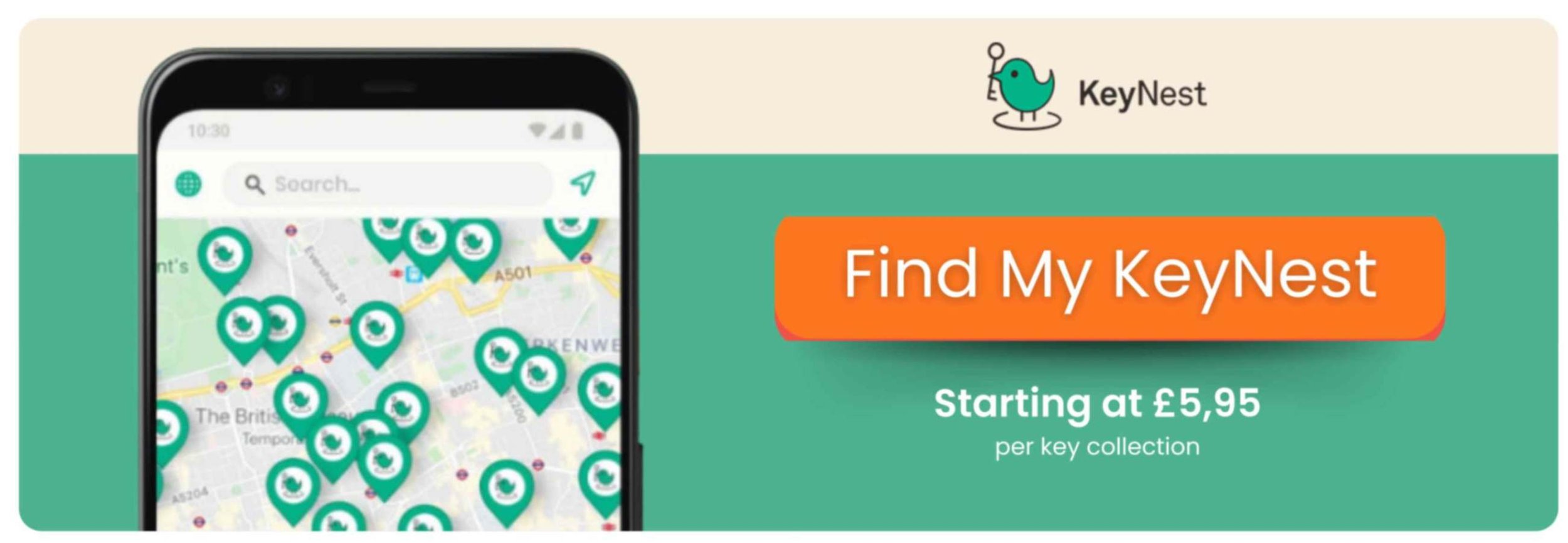Over 1500 key exchange locations nationwide
National Registration Scheme For Short-Term Lets All Over UK
The UK government plans to introduce the National Register for short term let Scheme in 2025, which will significantly impact property managers, owners, and businesses in the short-term rental accommodation market. This licensing scheme initiative is part of a broader effort to regulate the increasing number of short-let listings, ensuring safer and fairer practices within the industry. Listing managers will need to stay informed about how this scheme affects their operations, compliance, and legal responsibilities. The new regulations aim to provide local authorities with an easier way to oversee short-let listings, promoting accountability.
Tenants and Airbnb hosts will both benefit from the enhanced protection the scheme offers. To comply with the new rules, listing managers will need to quickly adapt to planning permissions and zoning laws, ensuring listings are registered, well-maintained and managed in line with the latest standards. This change is expected to bring about more streamlined processes and clearer expectations for all parties involved. The registration process will make it easier to track short-lets and provide the necessary oversight to improve safety and quality. For listing managers, this means staying ahead of new legal requirements and adjusting their business practices.
The National Short-Lets Registration Scheme will require accurate record-keeping, up-to-date maintenance checks and a commitment to regulatory compliance from property owners. KeyNest, a key exchange service, will play a crucial role in helping listing managers and operators meet these new obligations. The service will provide a secure, efficient way to manage listing access and maintain compliance with the registration requirements.
This regulatory shift presents both challenges and opportunities for listing managers. Understanding and preparing for the changes ahead is key to minimizing disruptions and staying competitive in the evolving holiday-let market. The registration scheme will help establish a more organized, fair and transparent short-term rental industry across the UK.
What Is the National Short-Lets Registration Scheme For Holiday Lets?
The National Registration Scheme for short lets is a new initiative that will require all short-term rental listings across the UK to be officially registered with a central government database. This move follows increasing concerns over the growing number of unregulated holiday-let rent listings, often resulting in safety concerns for visitors, housing shortages and disrupted local communities.
The registration scheme is designed to improve the management of these listings and ensure that hosts meet a set of defined standards, especially regarding safety, zoning and financial reporting of the numbers of short-term lets around UK part of the tourism and hospitality industry.
Mandatory Registration: Hosts of short-term lets in their area must be registered with a central database.
Improved Accountability: Listing managers and hosts will be required to maintain records and demonstrate adherence.
Enhanced Safety Standards: The scheme will enforce safety measures such as fire alarms, carbon monoxide detectors, and gas safety checks.
Aimed at Reducing Risks: By implementing clear regulations, the scheme aims to reduce the risks of unlicensed and unsafe holiday-lets.
Local Authority Involvement: Local councils will play a pivotal role in enforcing the guidelines.
Regulatory Changes: The scheme will be enforced alongside other regulatory changes in the hospitality sector.
Impact Of the Scheme On Property Managers
The introduction of the National Short-Lets Registration Scheme will have a significant impact on listing managers who are currently managing holiday-let listings. From handling new paperwork to ensuring adherence with safety regulations, the scheme adds an extra layer of responsibility for listing managers.
It’s essential for managers to stay ahead of the changes and incorporate strategies to meet these requirements.
Increased Responsibility: Listing managers will be required to take on new adherence tasks and ensure all listings meet regulatory standards.
Documentation Requirements: Managers will need to ensure all listings are properly registered with the appropriate local authorities.
Safety adherence: Adherence to safety measures like fire and gas safety checks will become mandatory.
Financial Reporting: Listing managers will need to maintain proper financial records to comply with tax laws and guidelines.
Fines for Non-Compliance: Non-compliance with registration or safety standards may result in heavy fines.
Local Authority Cooperation: Listing managers will need to coordinate with local councils to ensure adherence.
How KeyNest Can Help Property Managers Comply
One of the most effective ways for listing managers to streamline operations and comply with the new Guidelines is by utilizing services like KeyNest. This service helps to manage the logistics of key exchange and listing access in a secure, compliant manner. As the demand for short-lets increases, KeyNest provides an automated solution to ensure that every listing is properly maintained and monitored.
Centralized Key Management: KeyNest offers a streamlined system for managing keys for multiple listing.
Safe Access: It ensures that only authorized individuals can access listing, enhancing security.
Convenient for Guests: KeyNest offers 24/7 access to listing keys, allowing for hassle-free check-ins and check-outs.
Compliant with Guidelines: KeyNest can help listing managers meet the new adherence standards for holiday-let operations.
Remote Management: KeyNest provides listing managers with the ability to oversee listing remotely, reducing the risk of errors.
Seamless Integration: It integrates smoothly with listing management systems, saving time and effort.
Challenges For Property Managers In Meeting The New Requirements
While the National Short-Lets Registration Scheme will bring many benefits, it also presents several challenges that listing managers must overcome. The initial transition to meet these new standards could be complex and require additional resources. Listing managers will need to navigate through the new guidelines while maintaining efficient listing management operations.
Adapting to New Guidelines: Adjusting to new adherence rules could take time and resources.
Cost of Upgrades: Listing managers may need to upgrade listings to meet safety and regulatory standards.
Managing Increased Workload: The new registration process may require additional time for paperwork, documentation, and communication with local authorities.
Possible Delays: Registration processing could cause delays, especially in high-demand areas.
Maintaining Listing Quality: Listing managers must ensure that all listings meet the required standards, which may involve hiring additional staff or contractors.
Penalties for Non-Compliance: Failing to comply with the registration requirements could lead to fines or other penalties.
What Property Managers Can Do Now To Prepare
Listing managers should start preparing for the new registration scheme now to ensure a smooth transition when it’s enforced. It’s important to assess current listing portfolios, update safety measures, and familiarize oneself with the registration process. With the right tools and resources, listing managers can navigate these changes efficiently and avoid potential issues down the road.
Assess Current Listing: Start by conducting a thorough review of each listing to identify any potential issues or upgrades needed to meet the new guidelines.
Update Safety Features: Ensure all listings are equipped with necessary safety features like smoke alarms, fire extinguishers, and carbon monoxide detectors.
Familiarize with Registration Process: Research and understand the new registration process for holiday-let listing.
Set Up Record-Keeping Systems: Implement a system for managing listing-related records, including maintenance, financial transactions, and safety checks.
Stay Informed: Keep up to date with any changes in guidelines or updates from local councils.
Use Technology: Consider using platforms like KeyNest to streamline key management and improve operational efficiency.
Preparing For The Future Of Short-Let Regulations
As the UK prepares to implement the National Short-Lets Registration Scheme, listing managers and providers must be proactive in adapting to these changes to guarantee revenue, safety and adherence. The scheme will bring increased level of oversight to the holiday-let market, resulting in more stringent guidelines. However, this also presents an opportunity for listing managers to enhance the professionalism and safety of their operations.
By understanding the guidelines and staying up to date with any changes, listing managers can avoid costly penalties. Investing in technology, such as KeyNest, will help streamline adherence processes and improve efficiency. Listing managers should also take steps to ensure they are meeting all requirements for registration and safety. This includes ensuring accurate listings, conducting regular inspections, and keeping detailed records.
The key to success will be staying informed, remaining organized, and leveraging the right tools to address these challenges effectively. By embracing these changes, listing managers can not only avoid fines but also strengthen their reputation in the holiday-let market. Those who are proactive and prepared will have a competitive advantage over others who are slow to adapt. This preparation will allow them to continue operating smoothly and legally.
Though the transition may seem daunting initially, it is manageable with the right approach. Ultimately, those who take the necessary steps will position themselves as reliable, compliant hosts in the growing holiday-let market.
About Us
KeyNest offers you a convenient service for storing and exchanging your property keys. You can drop off a key at any of the 7,000+ locations in our network, so there’s one such Point located next to your property.
Guests, cleaners or contractors can then collect the key securely from a KeyNest Point or KeyNest Locker which is usually open 24/7. You'll be notified each time the key is picked up or returned, and you can even customize check-in and check-out times. By leveraging technology and a global network of locations, KeyNest continues to redefine property management, offering solutions tailored to meet the evolving needs of the rental market..
KeyNest has an ever-expanding global network of locations located just minutes from your property. To find out more you can contact us.
Neil Beltran 18 February 2025



